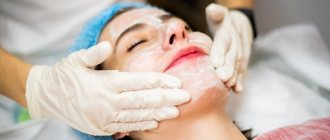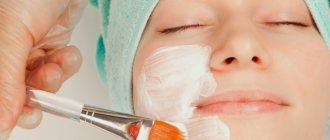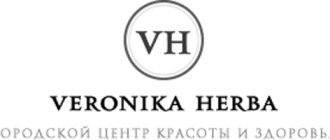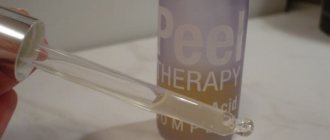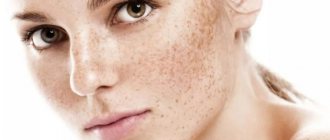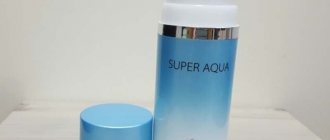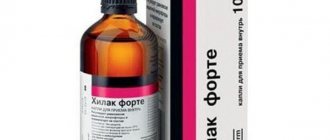Deep facial peeling is a modern non-surgical rejuvenation procedure through the almost complete destruction of old layers of the epidermis and dermis.
After it, the basal layers of the skin are completely restored due to regenerative abilities and stimulation of collagen and elastin. As a result, the facial skin becomes smooth, soft, elastic and toned.
Deep facial peeling has several types
Chemical (phenolic)
This is the most commonly used and widespread deep peeling method. It is performed by applying a special substance – phenol – to the skin. The result is the acquisition of a beautiful matte complexion, smoothing, and sometimes the disappearance of wrinkles and scars. More details about phenol peeling below.
Mechanical
For this procedure, special metal brushes or diamond cutters are used to remove the epidermis. As a result, it is possible to remove small scars, unwanted pigmentation and smooth out wrinkles. The procedure can take up to 1.5 hours.
Laser
The most commonly used lasers are carboxylic or ebrium lasers. The laser beam almost instantly gets rid of the keratinized old epidermis. The ebrium laser has some advantages: it is more precise, reduces the thermal effect on the dermis, shortens the duration of the procedure and is less painless. But at the same time it acts more superficially than carboxylic. Laser peeling is suitable for smoothing out moderate wrinkles and smoothing skin texture.
For all types of deep peeling, local or general anesthesia is required.
Price
Prices for such operations are determined by the type of procedure, the means and devices used, but on average they range from 4 to 12 thousand rubles.
More specifically:
- the use of salicylic solution costs 3-5 thousand rubles;
- the use of phenol costs 6-10 thousand rubles;
- the price of a procedure involving trichloroacetic acid ranges from 5-8 thousand rubles;
- laser costs 12-15 thousand rubles;
- the use of ready-made solutions for home cleaning is estimated at 2-5 thousand rubles.
Contraindications
- The presence of cardiovascular diseases (phenol can cause arrhythmia);
- Liver and kidney diseases. Phenol is a toxic substance that must be disinfected in the body and removed from it. In diseases of these organs, this does not happen, and phenol circulates in the body, causing a disruption in the functioning of other organs and systems;
- Oncology;
- Pregnancy (phenol can pass through the placenta into the baby’s blood and cause disturbances in its development);
- A large number of acne and pustules (bacteria may spread and new pimples may appear);
- Large scars, warts, freckles;
- Various skin diseases (psoriasis, eczema);
- Herpes, HIV.
Pros and cons of deep facial peeling
pros
- The metabolism of skin cells improves, their renewal accelerates. As a result, the surface of the face becomes healthier and more radiant;
- the functioning of the sweat and sebaceous glands is normalized;
- the skin becomes smooth, elastic, firm and full of freshness.
Minuses
- The procedure is always accompanied by pain, which can continue for several days after deep peeling;
- in the first few days after the procedure, it is necessary to take antibacterial drugs due to the risk of skin infection;
- Before removing the mask, skin contact with water is prohibited: you cannot wash your face, brush your teeth, it is even recommended to drink water through a straw;
- unfortunately, deep peeling will doom you for a long time to avoid direct sunlight and use protective cosmetics in the spring and summer;
- One of the most unfavorable aspects is the long rehabilitation period, which can often reach 6 months, during which there may be constant skin sensitivity, redness and irritation.
Dermatologist and cosmetologist Kristina Titkova talks about chemical peeling
Peeling is a procedure for renewing (exfoliating) the skin using peeling agents (preparations). The chemical peeling procedure can be carried out all year round (the most common myth is that peelings are carried out only in autumn and winter). Almost all peels fit this statement, but there are exceptions, for example, retinol.
So why do people exfoliate?
The results of the procedure are: improved skin texture, reduced depth of wrinkles, better light reflection and radiance of the skin, reduced pigmentation, evened out complexion.
Today, there is a huge selection of drugs for chemical peeling by specialists in a clinic, as well as independently at home. The difference between the drugs is the different concentrations of active components. Home peeling has a lower concentration and is safe for self-use. The only thing I recommend is not to choose peeling yourself, but to trust your cosmetologist, since each specific product has its own indications, contraindications and features of use.
Absolute contraindications to chemical peeling:
- The presence of inflammation on the skin in the peeling area of any nature (infection, injury, disease).
- Period of exacerbation of herpes, individual intolerance to the components included in the peeling.
Also, each specific peeling has its own contraindications. All peelings can be divided into 2 groups:
- Peels that work through negative stimulation. They work “from the outside” and destroy the stratum corneum of the skin. The skin receives a signal to renew and “heal” damage, and thus the cellular composition is renewed. These include: keratolytics (phenol, salicylic acid, resorcinol), AHAs (alpha hydroxy acids or fruit acids), enzymes (proteolytic enzymes, the most famous are bromelain and papain).
- Peels that work through positive stimulation. And this is one representative - retinol and retinol peeling. It does not damage the top layer of skin, but penetrates the nuclei of living cells, gives a signal for active cell division and young cells, moving upward, literally displace old skin cells. Retinol peeling is a classic “seasonal” peeling and is carried out during the period of minimal solar activity, in autumn and winter.
To get the maximum positive results from chemical peeling, you need to follow simple recommendations. Use sunscreen with a high degree of protection after the peeling procedure, do not injure the skin (do not try to remove crusts and films yourself if there are any), use healing, moisturizing creams such as Bepanten.
Progress of the procedure
The procedure should be performed only by certified specialists in a hospital in the presence of an anesthesiologist and resuscitator under the control of a cardiac monitor.
Stages:
- Cleanses the surface of the face from dirt and excess oil. The epidermis is cleaned with soap, applied with a rough sponge and rubbed thoroughly. After this, the skin is dried and degreased with alcohol.
- The application of special substances containing phenol is performed after local or general anesthesia. It is necessary to distribute the substance as evenly as possible on the skin. The solution should be applied slowly with short breaks of 10-15 minutes.
- Silicone is applied on top of the phenol solution, forming a film on the face, on top of which another substance is applied - jelly. This entire mask, depending on the expected effect, stays on the face for 1-3 days. After this period has expired, the mask is removed and a wound healing cream is applied to the skin.
The procedure itself takes up to 3 hours. The effect of the procedure is visible only 7-10 days after completion. The overall effect lasts for 6-8 years.
Deep chemical peels are recommended to be performed once; repeated use throughout life may increase the risk of complications. If necessary, it is possible to use superficial and medium peels, which are safer.
Before and after photo No. 1
Before and after photo No. 2
Before and after photo No. 3
Action, efficiency
Depending on the depth of impact, peeling can be:
- Superficial – with removal of the stratum corneum and shallow cleansing of the skin.
- Median – with epidermis epilation down to the basal skin layer.
- Deep - which is the destruction of the old skin over its entire thickness, in which only thin fragments of tissue remain. From these, the dermis is then regenerated.
If the rejuvenating effect of superficial cleansing is noticeable in 5-6 procedures, and the middle one - after a single session, then with deep skin restoration does not occur immediately .
After all, to start the process of natural regeneration, a deep trauma is inflicted on her. In this case, up to 0.6 mm of dermis is removed. It's almost a surgical operation.
But the result of a difficult and lengthy procedure is amazing: the new dermis that appears after this looks ten years younger.
This effect is long-lasting ; this operation does not need to be repeated for 5-6 years. No wonder she is popular among Hollywood film stars.
Possible complications after facial cleansing
The longer the solution remains on the skin, the higher the likelihood of complications. Therefore, it is very important to select the duration of exposure of the mask on the face for each type of skin, taking into account its sensitivity and characteristics. Despite the high skill of specialists and compliance with all rules, the frequency of complications remains quite high:
- the appearance of allergic reactions;
- chemical burn to the face;
- arrhythmia;
- development of acute renal, liver or heart failure;
- increased risk of developing skin cancer;
- development of purulent complications;
- the appearance of a clear line dividing the skin unaffected by the procedure and the newly grown dermis deprived of new grown dermis as a result of deep peeling of melanocytes;
- the appearance of scars due to the destruction of cells of the basal layer of the epidermis;
- increased pigmentation (especially for patients with dark skin);
- hyperkeratosis;
- increase in the number of spider veins.
Complications and side effects can also occur in completely healthy people, since the permeability of the skin is different for each person. Accordingly, the concentration of phenol in the blood after deep peeling can be exceeded due to increased penetration through the skin.
How to make at home
Homemade formulations made from improvised products are not as effective as salon formulations, but they are safer. And if they are carried out regularly, you can achieve good results. This article contains 17 recipes for natural home peelings.
With calcium chloride
Fruit acids and pharmaceutical calcium chloride are more popular. Before cleansing, it is useful to steam your face using decoctions of string, chamomile, and oak bark.
The calcium chloride procedure is as follows:
- For the first time, an ampoule of a five percent solution is enough; if there are no complications after this, then you can then move on to twice the concentration of the solution. But it cannot be exceeded.
- First, a trial test of the skin's reaction to the drug is carried out. To do this, it is applied to the elbow bend. If there is no pain, hyperemia or severe burning, then the procedure is continued.
- Wash your face and remove fat with lotion.
- Wipe your face several times with a cotton sponge containing the preparation. The next layer is applied after the previous one has dried.
- There should be at least four such layers, and with repeated procedures - up to eight.
- After the last layer has dried, the mask is rolled up. Using fingers lubricated with baby soap, systematically, in a circular motion, remove the applied drug along with the dermis that comes off.
- Then the face is washed with warm and cold water. Cool washing helps the skin calm down.
- The finishing touch is applying moisturizer.
We have a separate article on the project with options for using calcium chloride for different skin types.
How to peel with calcium chloride:
With soap
Classic composition for home cleaning:
- a dessert spoon of boric acid and 10% ammonia;
- two tablespoons of glycerin, camphor alcohol, hydrogen peroxide;
- a couple of hydroperite tablets;
- two spoons of baby soap.
First mix all the ingredients in a glass container. Grated soap is gradually added to them (more recipes for peelings with soap).
The resulting creamy mass is applied to the face, left until dry, and then washed off. The mixture can be stored in the refrigerator for three months.
Soap peeling mask:
Saline
Various components are added to the popular salt peeling. One option: a spoonful of salt, soda and face cream. Their mixture is kept for 20 minutes and then washed off.
It is suitable for cleaning oily and porous skin. The cream can be replaced with sour cream or soap foam.
Salicylic
Salicylic peeling is often used, consisting of three aspirin tablets and a base of a small amount of kefir and soft cottage cheese.
The crushed tablets are mixed with the base, left for several minutes to allow the chemical reaction to take place, and a little more honey is added. The resulting composition is applied, left until dry, and washed off.
Anti-aging chemical peeling with aspirin:
Other recipes
Recipes for natural compositions for home peeling:
- Coffee grounds, a little sour cream or kefir, crushed banana and olive oil.
- For problem skin, a mixture of crushed pomegranate seeds with a spoon of honey and lemon juice is suitable.
- For oily people – lemon juice with sugar or soda with kefir.
- The sensitive dermis will benefit from a mixture of two tablespoons of oatmeal steamed in warm milk.
- A mixture of two spoons of bodyaga with 3% hydrogen peroxide (more recipes for peelings with bodyaga).
All these products are applied as a mask until dry and then washed off. After the procedure, the face is softened with moisturizing cream.
For home peeling, ready-made pharmaceutical or cosmetic preparations are also used.
Before doing this, it is imperative to study the attached recommendations and test them to identify skin allergic reactions.
